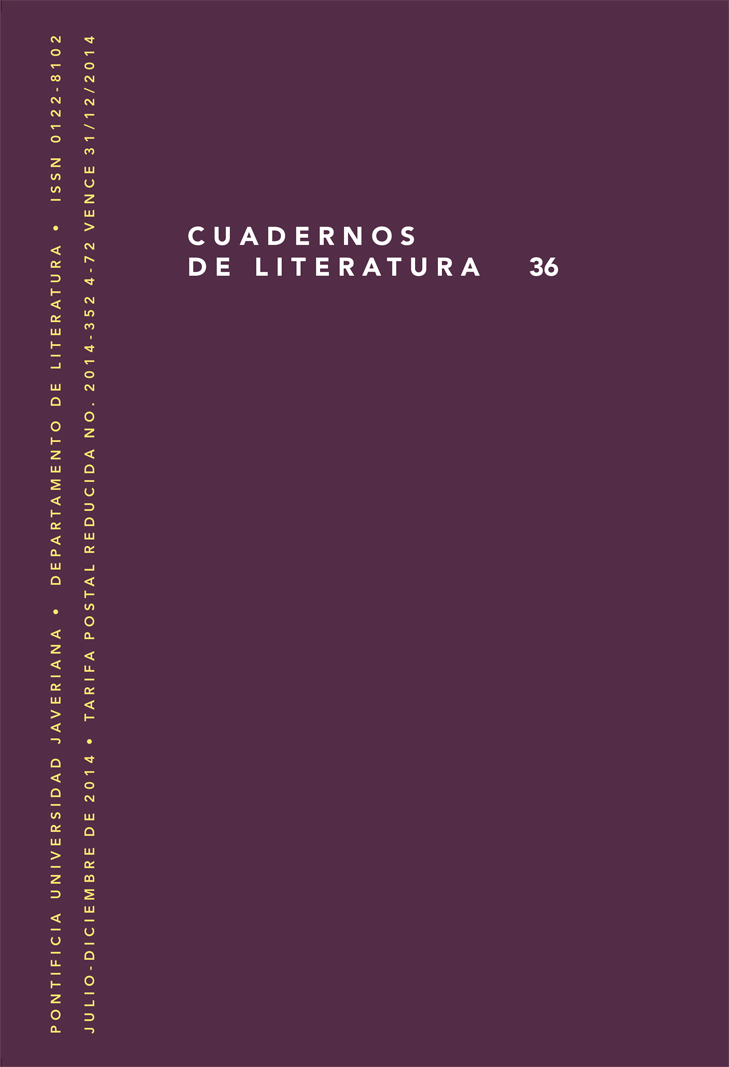Abstract
En el presente texto se intenta tomar parte en la discusión acerca de la “verdad” de los testimonios. Se alude a algunas razones por las cuales no tendría sentido desestimarlos a causa de su no-coincidencia con la realidad de los acontecimientos. Se sostiene que los testimonios tienen ciertas características que les son propias: su confección es eminentemente instrumental, su perspectiva fuertemente personal y subjetiva y su relato está claramente ficcionalizado y narrativizado. El hecho de que estas características no se oculten, sino que estén a la vista —incluso sus mismos autores aluden a ellas—, hace evidente que no es posible sostener simplemente que se trata de textos “falsos”, pues respecto de ellos se puede plantear directamente una dicotomía entre ficción y realidad.Cuadernos de Literatura is registered under a Creative Commons Attribution 4.0 International Public License. Thus, this work may be reproduced, distributed, and publicly shared in digital format, as long as the names of the authors and Pontificia Universidad Javeriana are acknowledged. Others are allowed to quote, adapt, transform, auto-archive, republish, and create based on this material, for any purpose (even commercial ones), provided the authorship is duly acknowledged, a link to the original work is provided, and it is specified if changes have been made. Pontificia Universidad Javeriana does not hold the rights of published works and the authors are solely responsible for the contents of their works; they keep the moral, intellectual, privacy, and publicity rights.
Approving the intervention of the work (review, copy-editing, translation, layout) and the following outreach, are granted through an use license and not through an assignment of rights. This means the journal and Pontificia Universidad Javeriana cannot be held responsible for any ethical malpractice by the authors. As a consequence of the protection granted by the use license, the journal is not required to publish recantations or modify information already published, unless the errata stems from the editorial management process. Publishing contents in this journal does not generate royalties for contributors.


